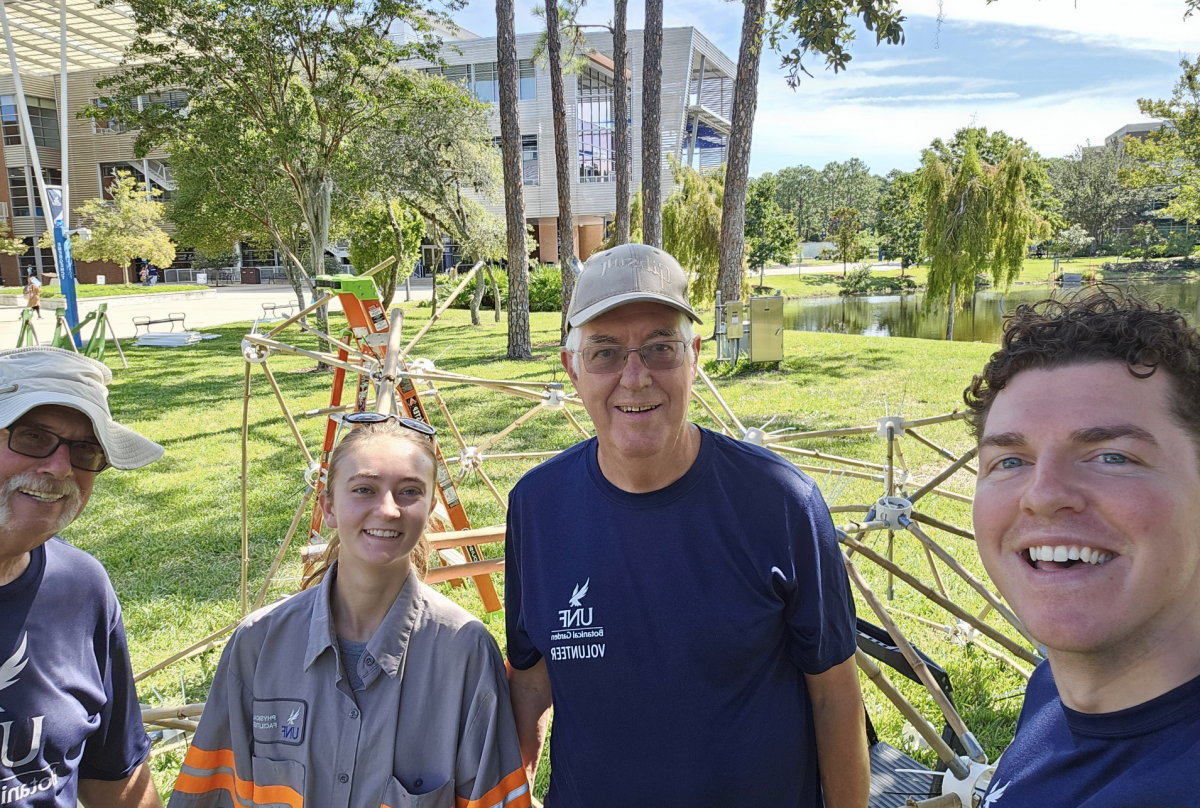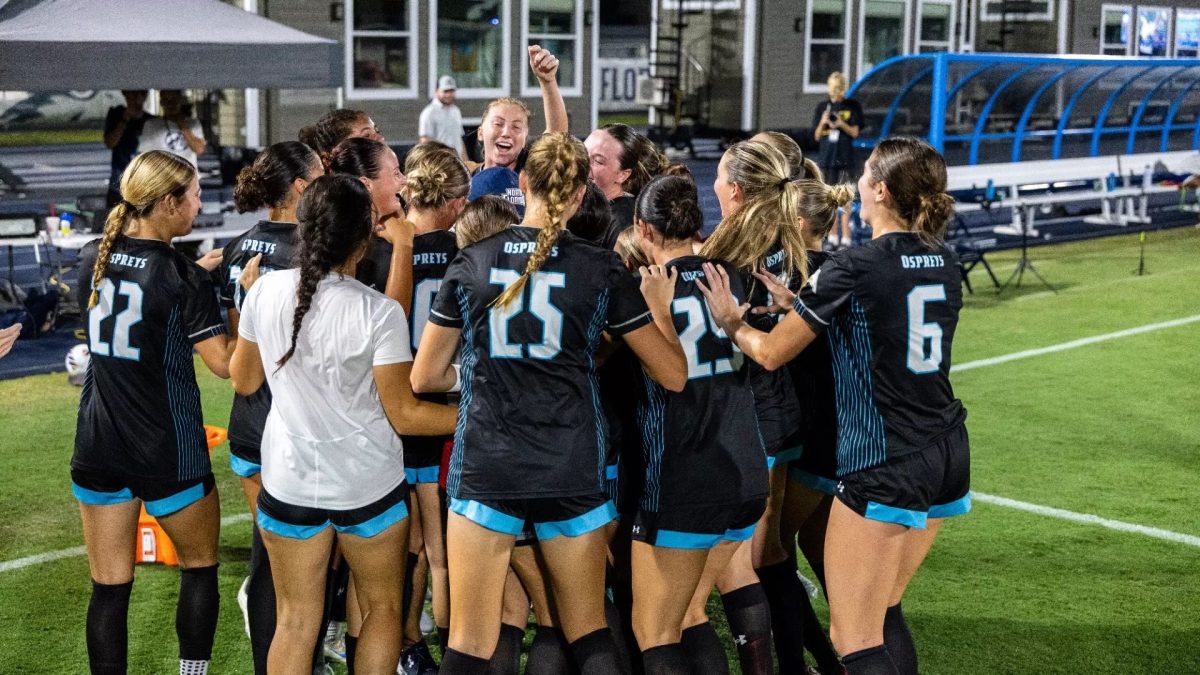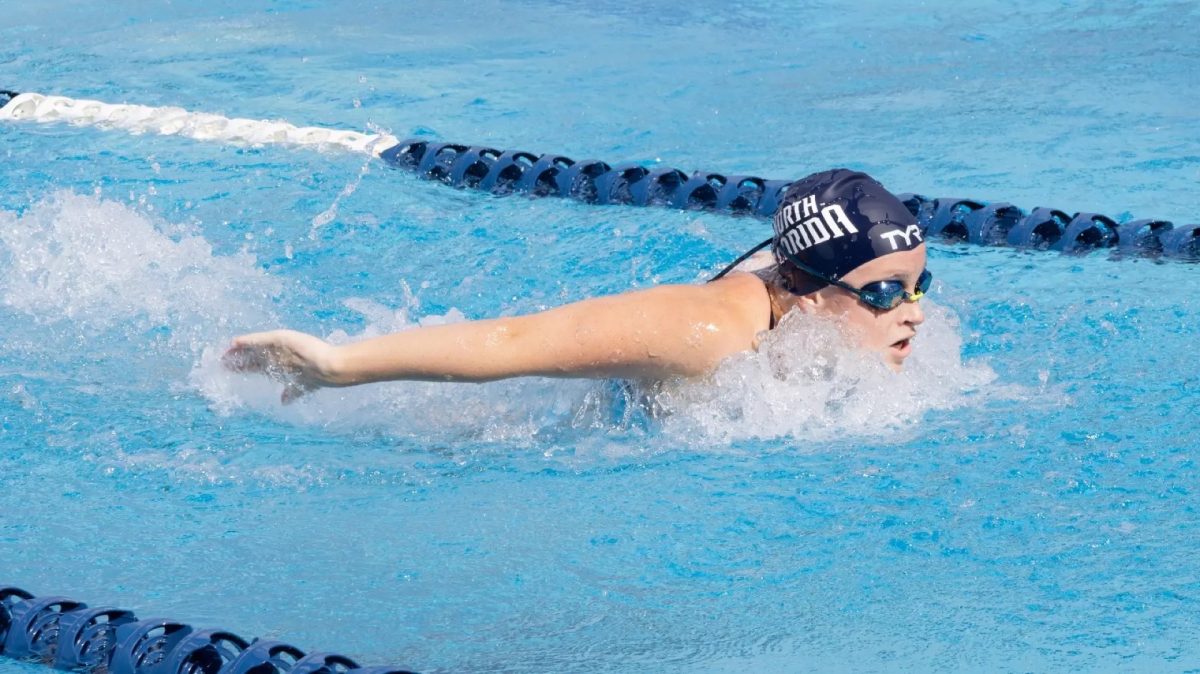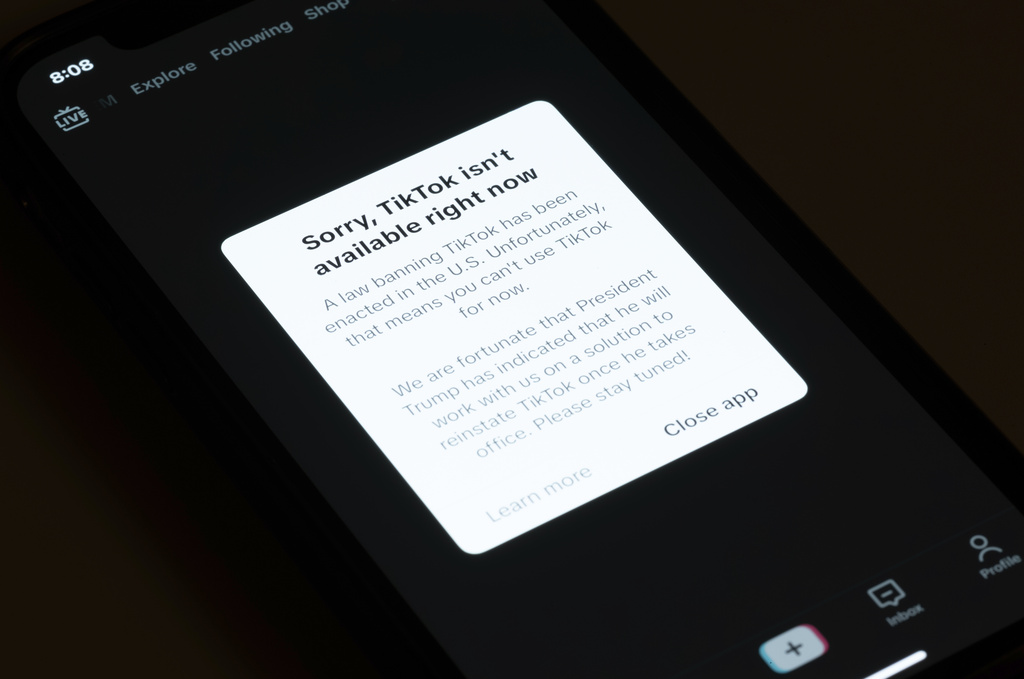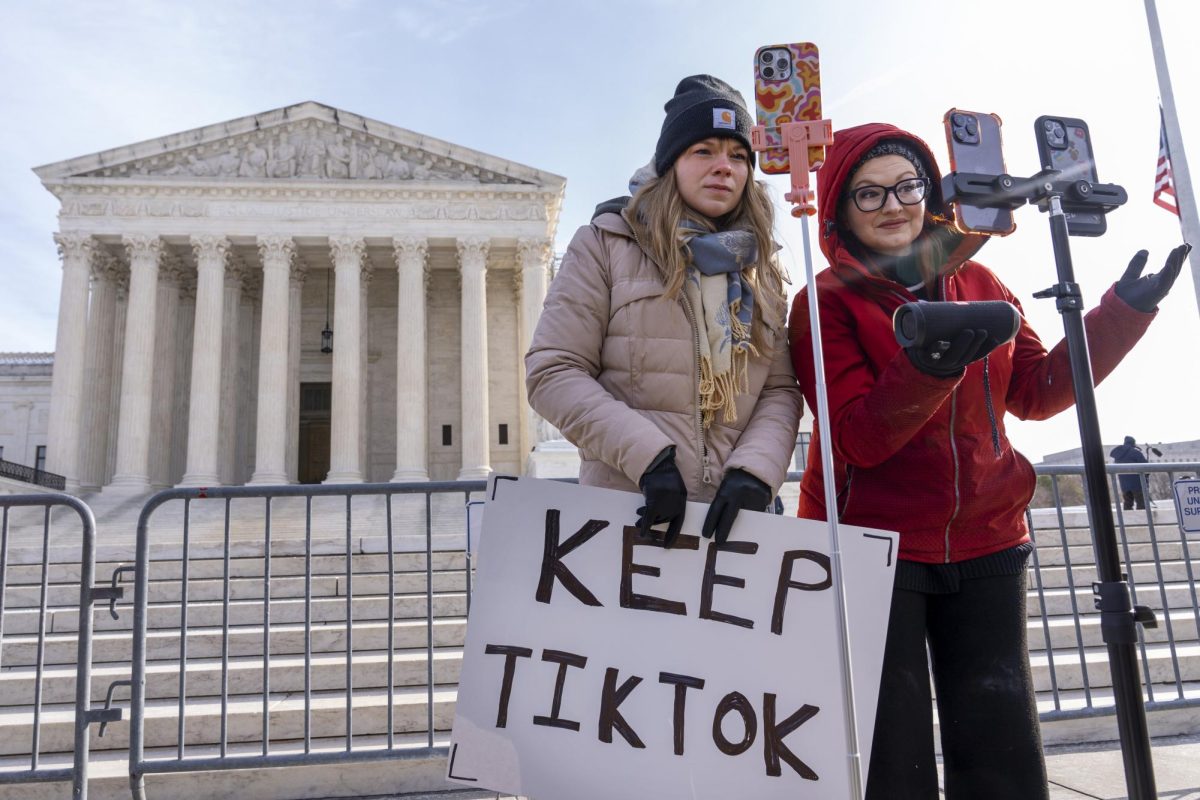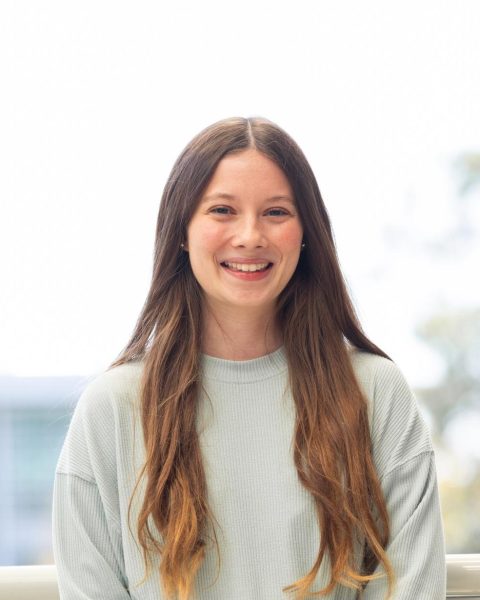Many students at the University of North Florida complete schoolwork with limited allowance of artificial intelligence from their professors, but there is one professor who has a unique approach to the new tool.
Frank Goodin, an associate instructor in UNF’s School of Communication, openly allows his students to use AI in their schoolwork.
Goodin said he knows his students are reaching for the best jobs in the film industry, and “people who get those jobs are people who can produce at the highest level.”
To Goodin, producing at the highest level means knowing how to use AI for self-benefit. In his classes, he teaches his students how to use AI properly and what messages to send to the bot to receive a desired and high-quality outcome. He likes when his students embrace the tool because he wants his students to succeed.
Goodin said he believes in using AI “appropriately, ethically, and with integrity.” He said that line gets crossed when people create work with AI without giving credit to the tool.
Specifically in the graphic design world, Goodin said he believes employers would not frown upon using AI.
Outside of UNF, Goodin uses his own AI for his YouTube channel One Hit Wonder AI, where he creates music videos, almost exclusively with AI. Goodin said the only thing he produces on his own are the lyrics—but sometimes, AI helps even with that too.
In terms of academic learning, Goodin said AI is “just another influence,” no different from a professor, writing tutor or Grammarly.
Other UNF professors have varying opinions across the board, however.
David MacKinnon, the Writing Center Director at UNF, said there is no “blanket policy” on AI at UNF, but faculty are unsure how to handle it because they aren’t sure when it interferes with students’ learning.
He compared the uncertainties about AI to a “moral panic,” similar to how society once worried about the newness of calculators or reading books for fun. MacKinnon said AI stirs up the same types of uneasy feelings.
Chunsik Lee, an associate professor for the School of Communication at UNF, is more cautious when it comes to learning with AI.
Sometimes, Lee allows his students to use AI; however, they must submit how they used it along the way. In one of Lee’s classes, he has an AI ban. Although he allows discussions about the technology, he wants his students to think through things on their own without the assistance of AI.
Isabella Lavorgna, a communication student at UNF, does social media for a small marketing company. She said her company pays for ChatGPT Premium because “it’s going to take over.” Lavorgna said she uses AI for her writing and schoolwork.
“It’s so easily and readily available,” Lavorgna said.
She said most students use ChatGPT when they aren’t supposed to “as much as they don’t want to admit it.”

Many professors are concerned that if students use the tool it may prevent them from actually learning the material.
The Wharton School at the University of Pennsylvania collaborated with a high school in Turkey and conducted a research study on how well students were able to perform in math schoolwork.
According to the study, throughout the process, it was apparent that using AI “significantly improves performance,” but when the tool was taken away from them, those who had used it, did much worse than those who never had access to it.
UNF professors’ policies for students using AI tools vary greatly, but Goodin’s stance is firm. He promotes AI use as a valuable skill for students entering competitive fields.
“The sooner we embrace the change and adapt, the better we will serve our students and the broader community,” Goodin said.
____
For more information or news tips, or if you see an error in this story or have any compliments or concerns, contact editor@unfspinnaker.com




